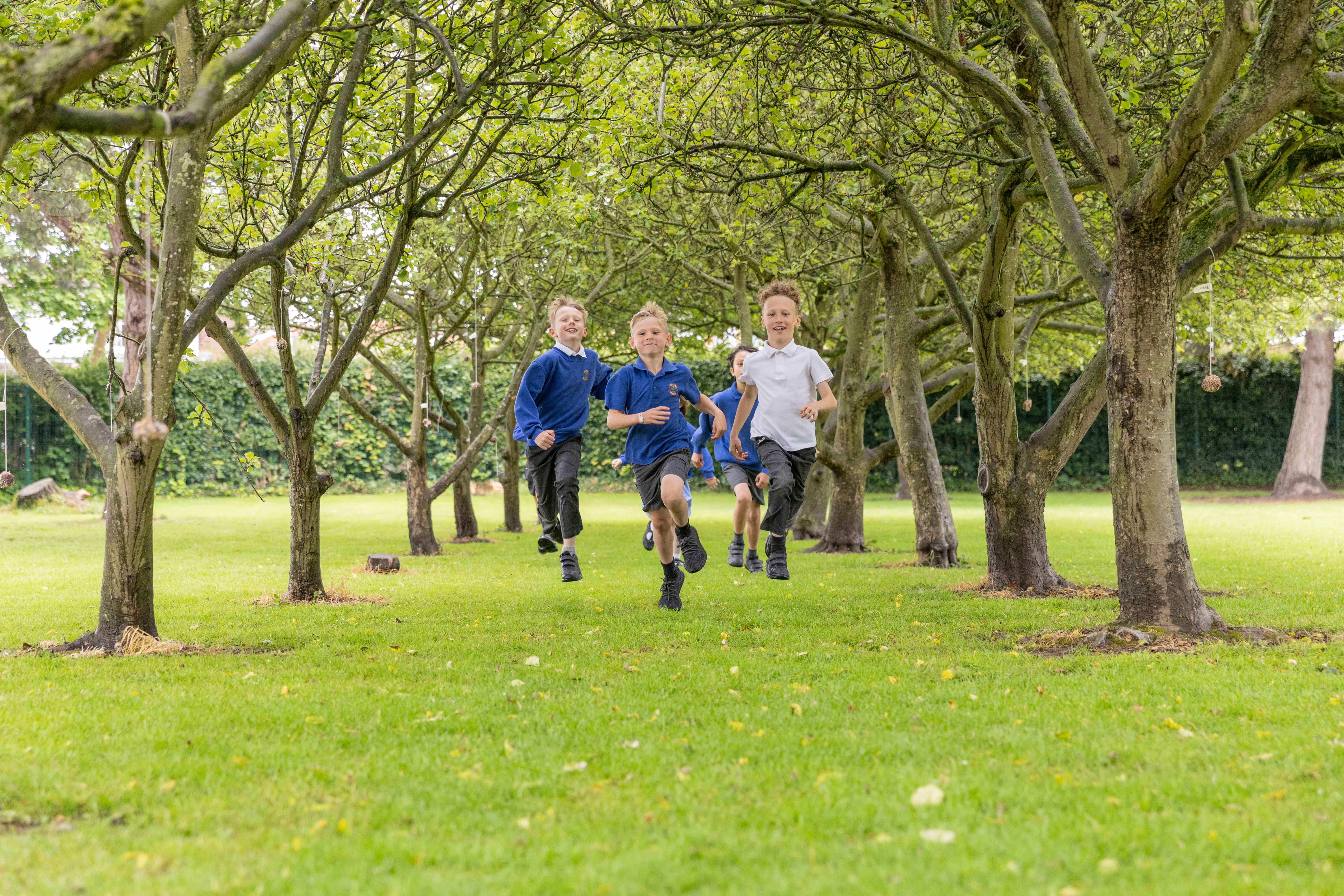Forest School
At Orchard, we are committed to providing our pupils with enriching and engaging learning experiences that extend beyond the classroom. Being a Forest School is testament therefore to our dedication to holistic education, fostering a deep appreciation for the natural world and supporting the overall development of our pupils.
We are fortunate to have three Level 3 Forest School Practitioners: Mrs Astle, Miss Kucharska and Miss Sheldon, who lead Forest School sessions as part of our curriculum.
Through regular Forest School sessions, our pupils have the opportunity to explore the outdoors, engage in hands-on activities, and connect with the environment in a meaningful way. This approach aligns perfectly with our school's ethos, which emphasises the importance of nurturing the whole child – intellectually, physically, and emotionally.

What is Forest School?
A Forest School is a specialised outdoor learning environment where children engage in regular, long-term, hands-on experiences in a natural setting, like a forest or woodland. It's a holistic, learner-led process that emphasises personal, social, and technical skill development, while fostering a connection with nature and the environment.
- Outdoor Learning: Forest Schools utilize natural spaces as classrooms, moving learning beyond traditional indoor settings.
- Learner-Led: Children are encouraged to explore, discover, and engage in activities that interest them, with the Forest School practitioner acting as a facilitator and support.
- Holistic Development: Forest School aims to develop children's personal, social, emotional, and physical skills through hands-on experiences in nature.
- Risk and Challenge: Forest Schools encourage children to engage in 'risky play' – activities with managed risks that allow them to test their limits and build confidence.
- Long-Term Sessions: Unlike one-off field trips, Forest School sessions are typically regular and ongoing, allowing for the development of skills and a deeper connection with the environment.
- Nature Connection: Forest Schools aim to foster a strong relationship between learners and the natural world, promoting environmental stewardship and appreciation for nature.
What activities do children do at Forest School?
Forest school activities are hands-on, nature-based learning experiences that take place in natural settings. They offer a range of activities, from sensory explorations and craft projects using natural materials, to tool use, foraging, and fire building.
Sensory and Exploratory Activities:
- Sensory Walks: Encouraging exploration of the senses – feeling textures (leaves, bark, soil), listening to sounds (wind, birds), and smelling (pine needles, flowers).
- Puddle Splashing and Mud Pie Making: Simple yet engaging activities that allow children to interact with the environment and explore natural materials.
- Bug Hunting: Exploring the local ecosystem, identifying different insects, and learning about their habitats.
- Nature Collections: Collecting and categorizing natural objects like leaves, twigs, and stones.
- Nature Scavenger Hunts: Engaging children in a search for specific items in the forest, fostering observation skills.
Creative and Craft Activities:
- Den Building: Constructing shelters using natural materials and tarpaulins.
- Natural Arts and Crafts: Creating art using found objects like leaves, twigs, and clay.
- Foraging and Cooking: Learning about edible plants, foraging safely, and preparing meals using natural ingredients.
- Weaving and Whitling: Developing fine motor skills through crafting activities using natural materials.
Skill-Based Activities:
- Fire Building and Lighting: Learning safe fire-building techniques and the importance of fire safety.
- Tool Use: Using tools like saws, chisels, and shovels for woodworking or gardening projects.
- Rope Swings & Tree Climbing: Developing physical skills and encouraging confidence through controlled risk-taking.
- Bug Hotel Building: Constructing a habitat for insects, promoting understanding of the natural world and its inhabitants.
Other Activities:
- Storytelling: Sharing stories related to the forest, its inhabitants, and folklore.
- Rock Counting and Balancing: Simple maths and physical activities.
- Nature Journaling: Encouraging observation and documentation of nature.
- Small World Play: Using natural objects to create mini-worlds and engage in imaginative play.
What are the benefits of Forest Schools?
This type of learning has been shown to have numerous benefits, including improved physical and mental well-being, enhanced problem-solving and teamwork abilities, and a greater appreciation for the natural world.
Further Information – please click on the links
Forest School days/schedule – Autumn Term
Kit List
Forest School Statement of Intent
Skills Progression Map
Curriculum Pathway
Forest School I Can statements
FS lesson structure
FS Rules
Risk Assessments
Staff Handbook
Insect bites & stings
